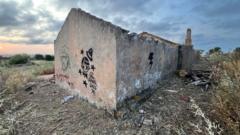The story of Tiger, a fugitive linked to illegal mining operations in South Africa, offers a heartbreaking insight into the intertwining lives impacted by the dangerous and often lethal quest for survival in one of the world's richest gold regions. His family's reflections illuminate the desperation that propels many to these hazardous jobs.
**South Africa's Elusive 'Tiger': The Manhunt for a Mining Fugitive**

**South Africa's Elusive 'Tiger': The Manhunt for a Mining Fugitive**
The hunt for James Neo Tshoaeli, known as 'Tiger', intensifies as his family reveals his troubled past amidst a deadly mining crisis.
In South Africa, the police continue their search for James Neo Tshoaeli, affectionately known as ‘Tiger’, who has been on the run for four months following his escape from custody. Authorities believe he played a significant role in an illegal mining operation at an abandoned gold mine near Stilfontein, where the tragic discovery of 78 corpses stunned the nation. Despite his mother Mampho Tshoaeli and younger brother Thabiso losing contact with him eight years ago, they are filled with worry and confusion about his alleged criminal affiliations.
Tiger’s life story reveals a young man forced into illegal mining after the death of his father, which pressed him into the role of family provider at a tender age. He had dreams of becoming a policeman but found himself navigating a treacherous world of zama zamas, informal miners risking everything for survival. His brother Thabiso chose a different path, staying home to rear sheep, while their mother recalls a different version of Tiger, one painted by years of pain and uncertainty.
The tragic fates of many illegal miners, highlighted by the story of Supang Khoaisanyane, who perished underground, convey the extreme risks faced by those trapped in the precarious mining economy. Supang, like many others, sought opportunities in South Africa’s mines to better support his family back home in Lesotho. His family was unaware of his illegal mining activities until they received news of his death, illustrating the desperation that drives many men from their homeland into a cycle of peril and sacrifice.
Both families caught in this tragic web—Tiger’s and Supang’s—reflect on the harsh realities and systemic hardships of life in Lesotho, where unemployment and poverty push men into the dangerous clandestine mining operations in South Africa. As the authorities have tightened their grip on illegal mining, the focus has turned to reforming the landscape of opportunity and safety for vulnerable workers who put their lives on the line. With Tiger still missing, questions remain about the broader implications of illegal mining in a region rife with violence, corruption, and deep-seated poverty.




















